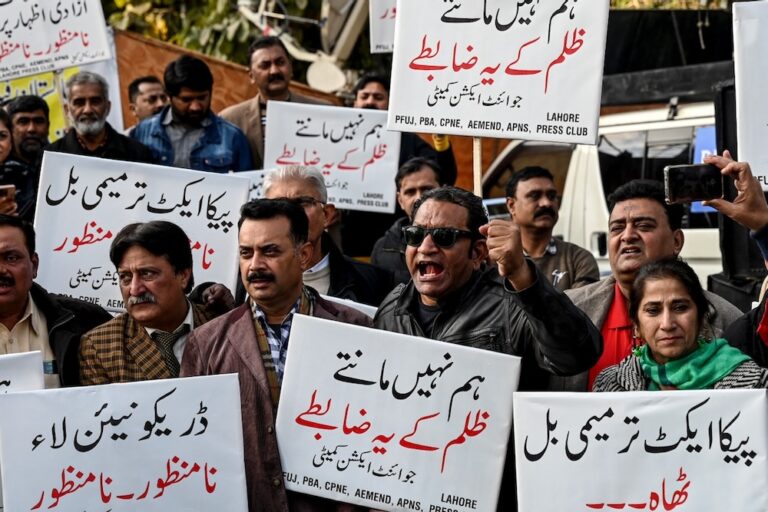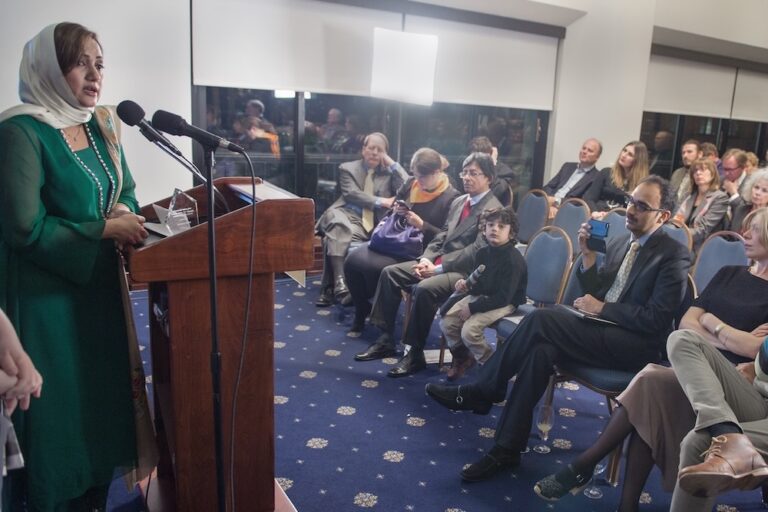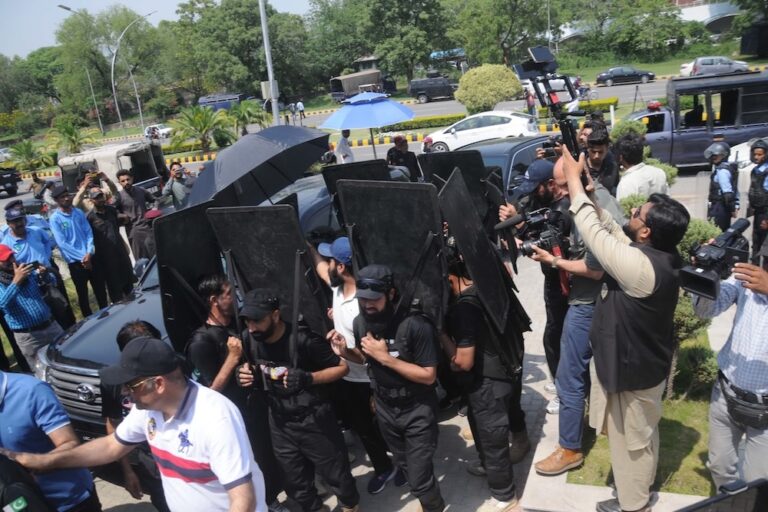(PPF/IFEX) – Rejecting the opposition’s objections, on 19 August 2004 the ruling coalition passed a controversial Defamation (Amendment) Bill 2004 in the National Assembly, Pakistan’s lower house of Parliament. The bill is mainly designed to protect public figures from slander by increasing punishment for offenders, including imprisonment of up to five years and/or a minimum […]
(PPF/IFEX) – Rejecting the opposition’s objections, on 19 August 2004 the ruling coalition passed a controversial Defamation (Amendment) Bill 2004 in the National Assembly, Pakistan’s lower house of Parliament.
The bill is mainly designed to protect public figures from slander by increasing punishment for offenders, including imprisonment of up to five years and/or a minimum fine of 100,000 rupees (approx. US$1,700).
Prime Minister Chaudhry Shujaat Hussain was present in the National Assembly to oversee “passage” of the bill he had vowed to bring forward at the outset of his tenure in office in June.
The vote on the bill came after an unsuccessful move by opposition parties to force an adjournment of the house for lack of quorum following a walkout protesting Speaker Chaudhry Amir Hussain’s partiality in admitting their privilege and adjournment motions.
The ruling coalition rejected a motion by the Muttahida Majlis-i-Amal, the coalition of Islamic parties, to refer the bill to the Council of Islamic Ideology (CII) to determine whether it was in accord with the Quran and Sunnah. The assembly also rejected a motion by members of the Pakistan People’s Party to circulate the bill and elicit public opinion until 30 September.
The prime minister intervened in a brief debate after the opposition parties ended their walkout to say that there was no need to refer the bill to the CII because nobody could deny that Islam disallowed falsehood and slander, which the law sought to check.
A statement accompanying the bill complained of a “general tendency to scandalize and defame others, including public figures”, in order to damage their reputation “either for an ulterior motive or through irresponsible conduct”.
District courts shall have the jurisdiction to rule on cases under this ordinance. The bill allows for 30 days for an appeal to be filed with the high court against the final decision and the high court shall have 60 days to decide on the appeal.
The bill passed by the National Assembly omits the controversial Clause 3 in the draft bill, which was originally proposed by the government and referred to the liability of publishers, editors, sub-editors and reporters. When the bill was introduced in the National Assembly in June, journalists protested against the clause saying it went against the spirit of press freedom.
Opposition members said they fear the law will serve as the “sword of Damocles” for the press and criticised the enhanced punishments stipulated by the bill.
The bill was to be sent to the Senate and afterwards will have to be signed by the president to become law.


